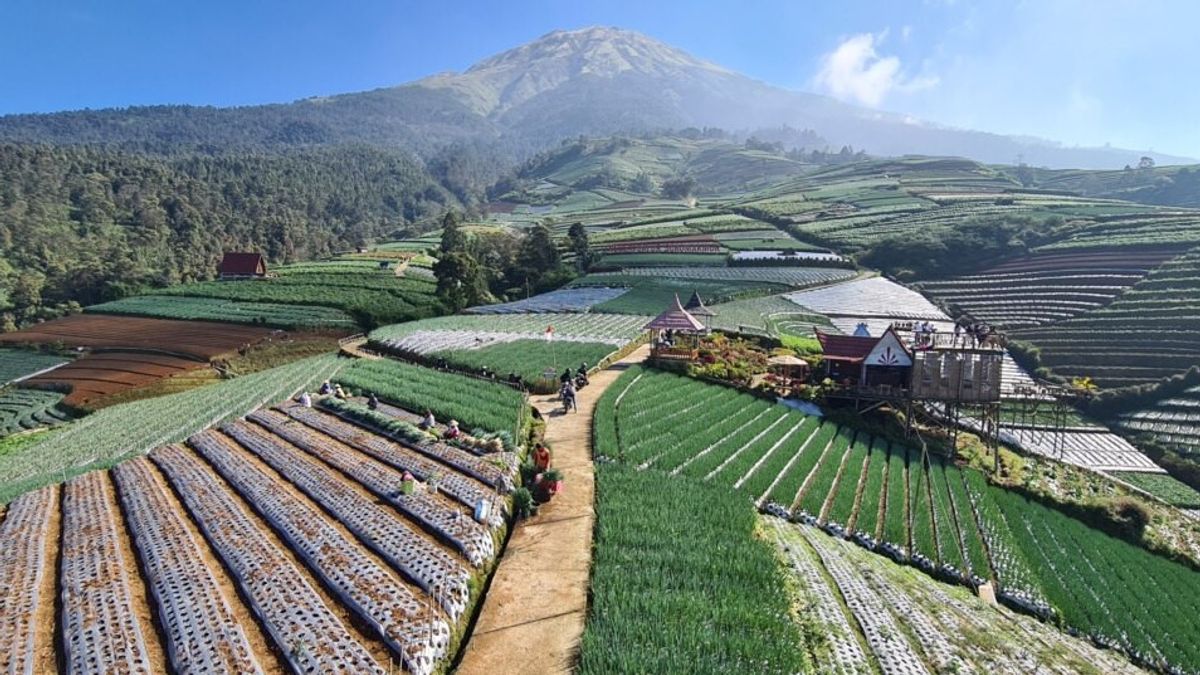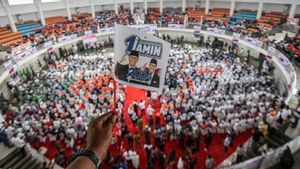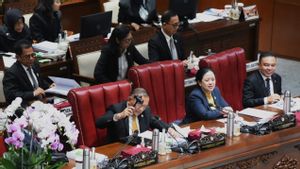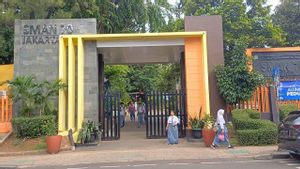JAKARTA Indonesia has a term as an agrarian country, but it is threatened with a food crisis because its food production is low. This happens because the number of farmers has decreased from year to year.
Ironic indeed, when an agricultural country like Indonesia has a large land, it is overshadowed by a food crisis, one of which is because of its inadequate agricultural human resources.
Since the first World Food Summit in 1996 in Rome, farmers have said that it is only by realizing food sovereignty that the world is able to eliminate hunger as well as eliminate poverty in rural areas.
How is it possible to achieve food sovereignty if the number of farmers is even more eroded?
The Central Statistics Agency (BPS) released the results of the 2023 Agricultural Census (ST) on December 4. From these results, it shows that the number of farmers in Indonesia is 29.36 million agricultural units. This number is down 7.42 percent when compared to the results of ST 2013 which reached 31.72 million business units.
The results of ST 2023 also explained that in terms of distribution of farmers by age, it was revealed that the number of farmers with an age range of 55 - 64 years actually increased to 23.20 percent from 20.01 percent. Then the age over 64 years increased from 12.75 percent to 16.15 percent.
Meanwhile, there are 6.18 million millennial farmers in Indonesia. This figure is around 21.93% of the total 28.19 million farmers in Indonesia.
At least the number of young farmers, millennials and Z, is believed to be correlated with agricultural productivity in Indonesia, which is stagnant and even tends to decline. In fact, according to agricultural observer Khudori, millennials and Z are expected to be part of the aging farmers solution.
"This is a yellow light and a sign that the agricultural sector is not attractive to them. The agricultural ecosystem is not yet completely friendly to them," Khudori told VOI.
"If Indonesia fails to overcome this, in the future the existing farmers will get older and less adaptive to technology, innovation and change," Khudori added.
Based on Jakpat's poll, only 6 out of 100 generation Z aged 15-26 years want to work in agriculture. Various reasons have been expressed by young people, especially from Generation Z, regarding the reasons they are not interested in the agricultural sector.
According to a contested survey, the absence of career development in the field of matches is the main reason why Generation Z refuses to farm. Another reason is that the agricultural sector has considerable risks, small income, unappreciated feelings, and is not considered a promising job.
SEE ALSO:
If it is not addressed, it is not impossible that Indonesia will be increasingly short of young farmers. The National Development Planning Agency (Bappenas) even estimates that in 2063 there will be no more farmer professions. Bappenas noted that in 1976 the proportion of Indonesian workers in the agricultural sector reached 65.8 percent. However, in 2019 it fell significantly to only 28 percent.
It is quite complicated, in the midst of food needs increasing due to the increasing population, human resources that 'feed' around 275 million people in Indonesia continue to have a regeneration crisis.
However, we also cannot blame the younger generation for not looking at the agricultural sector. Because in reality, although it is often underestimated, efforts in agriculture require large capital, while the results can be said to be uncertain. Depending on various factors, one of which is weather.
The low interest of youth working in the agricultural sector makes Indonesia must be in the sixth place in the country with the highest proportion of agricultural labor in Southeast Asia. According to ASEAN Statistics Division data, the proportion of agricultural labor in Indonesia is only 29.8 percent in 2020.
This figure is still far behind Myanmar, which occupies the top position with 48.9 percent, followed by Laos (45.4 percent), Vietnam (35.4 percent), Thailand (35 percent), and Cambodia (32.1 percent).
According to Said Abdullah, the Coordinator of the People's Coalition for Food Sovereignty (KRKP), the cause of the problem of farmer regeneration is government policies that prioritize the non-farm sector. An easy-to-see example is how the government encourages investment, but most of them lead to the manufacturing sector, the establishment of factories such as what happened in Karawang to Bekasi.
In fact, Karawang together with Indramayu and Subang are among the largest rice producers in West Java. But in recent years, along with the massive construction of factories in Karawang, young people in the area began to leave the agricultural sector and switch to workers in factories because they were considered more promising.
Farmers' regeneration is considered very important to be done considering the magnitude of the impact on food security. Farmers' regeneration needs to be done because looking at the data on the number of old farmers can actually result in a decline in performance in agriculture.
Therefore, Khudori hopes that whoever is the president who will be elected in the 2024 Presidential Election (Pilpres) is sensitive to the results of the 2023 Agricultural Survey in order to make the agricultural sector more friendly to the younger generation.
"Indonesia cannot accumulate its future on farmers who are elderly and at the end of this productive age," said Khudori.
There must be extra hard efforts to make the agricultural sector attractive by creating a friendly ecosystem for the millennial generation. And this is not easy," Khudori concluded.
The importance of farmer regeneration is also expressed by the Provincial Government of North Sumatra for the future of agriculture, especially in the province of thousands of Medan cities.
Head of the Food Crops Division of the North Sumatra Food, Food Crops and Holticulture Service, Muhammad Juwaini, said that his party continues to do various ways to convince young people to be interested in replacing farmers over 50 years of age.
But he did not deny a number of challenges faced, one of which was the impression that farmers' work was not flashy.
It's not easy. We need to provide insight and view to the younger generation that farmers are not a low thing. Because, in the agricultural sector it can also generate large income if done optimally," said Juwaini.
The English, Chinese, Japanese, Arabic, and French versions are automatically generated by the AI. So there may still be inaccuracies in translating, please always see Indonesian as our main language. (system supported by DigitalSiber.id)













